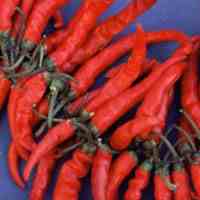Happy people have found that life is filled with wonderful gifts to help us keep healthy, holy and whole. They are aware that there are countless aspects that make a person feel fully alive and energized with optimism for the future.
Some of the aspects are called physical, mental or spiritual; yet they all make up the whole person that experiences these as sensations, emotions, and feelings of union with our spiritual destiny when we become "beings of the hereafter."
A healthy person eats a balanced diet filled with every nutritional need to promote well being. He has a normal thirst for clean water, pure air and a healthy desire to be physically fit and morally strong.
The normal process of the digestion of food causes oxygenation, and chemical reactions to everything we ingest. Free radicals are oxygen molecules that cannot find a mate and destroy anything in their path.
Rusting metal and rotting fruit are examples of the free radical activity that goes on outside of our bodies. Free radicals can equally cause problems inside our bodies. You do not feel the damage that is taking place inside of you, however, it is ever present. Then it may be too late. In addition, high body fat percentages contribute to much higher incidences of free radical damage.
Antioxidants = Free Radical Scavengers
We have known for decades how to stop free radical activity. Most vitamins, minerals, amino acids, enzymes, and herbs are the best known free radical fighters. They are also called antioxidants. The ones that are not direct free radical fighters have other jobs that directly or indirectly help the antioxidants. They are all synergistic, meaning they do a much better job when they have each other than when they are taken alone.
People from different parts of the world are affected in different ways to the harmful effects of the environment. There are many harmful substances in the water, air and food that we eat and the substances that we touch. Not all of the products that we use are complete safe and harmless to our health. Just about every medicine that has been created has several harmful side effects that can even cause us to die.
The cold remedy you take makes you sleepy. The antidepressant gives you a headache. The sinus decongestant makes your heart race. Why are side effects so common?1.
To understand this you need to realize that your body is an immensely complex structure built from chemicals that must be regulated in order to function smoothly. Chemicals such as hormones and other molecular messengers usually make these adjustments. Medicines often work by taking the place of one of the body?s regulating chemicals to readjust the balance. When this restores functioning it is seen as helpful.
However, two things complicate the picture. First, the body often uses the same chemical to regulate more than one process. This means that a medicine may retune not only the desired target but also others that don?t need readjustment. An example of this is that the drug prednisone turns off inflammation, but also causes thinning of bones.
Secondly, medicines are not always as selective as we would wish. This means the medicine may alter a number of unrelated processes at the same time. For example, the antidepressant drug amitriptyline can help depression (by acting on serotonin receptors), can also lower blood pressure (by affecting nor epinephrine receptors), cause blurred vision, dry mouth and constipation (by blocking acetylcholine receptors) and produce sleepiness and weight gain (by binding to histamine receptors).
One of the more surprising aspects of medications is how two people taking the same medicine can have such different experiences. One person may have severe or troublesome side effects that make the medicine intolerable, while another person finds that the medicine does only the good that it is intended to do. In fact when many thousands or millions of people use medicines, the list of observed side effects can become long indeed.
Side effects may be rare or common, serious or merely annoying. A medicine with frequent mild side effects may be tolerated by the majority of people and be regarded as relatively safe. On the other hand if a medicine has a less common but more serious side effect it can mean that the medicine should only be used when there is no alternative, and then with close monitoring.
These considerations require doctors to assess the risk of side effects versus the expected benefit of any medication. In a life-threatening disease, even serious side effects may be worth the risk; but for a mild, transient illness, little risk or even discomfort should be tolerated.
As we learn more about the way our bodies are regulated, more medications are developed that allow us to intercede when diseases disrupt our functioning. It has been a prominent goal in the development of new medications to avoid more serious side effects.
But it is likely that until we can foretell who is especially susceptible, at least some people may experience side effects from otherwise beneficial medications. Many of us may have to keep going back to our doctors to try a second or even a third medication before we find one with the strongest therapeutic effect and the fewest side effects.
Supplementing vitamins, minerals, amino acids, enzymes, and herbs in the manner to neutralize free radicals is virtually unknown to most people. Or, the information is not well known by our traditional American Medical establishment.
Unfortunately, we tend to be educated by the popular media, multi-level companies, or health food store employees. It has been my experience that these individuals know enough about vitamins, minerals, amino acids, enzymes, and herbs "to make them dangerous."
They are far from being experts in this field. Of the hundreds of multi-level and health food store owners/employees with whom I have spoken over the past couple of decades, few have any idea how much to take and how often to take them. Multi-level companies in particular are full of pseudo-scientific individuals being led around with the promise of making "big bucks" someday.2.
Some of the best food there is made, we have cultivated over the eons to keep us totally well. Food is the bread of life that keeps us happy. Herbs and spices were undoubtedly made for use in those climates where they grow, but the natives of those climates use them much more sparingly than we do.
We may reasonably suppose that they are more adapted to the wants of hot climates than of cold ones, as nature has placed them in the former, and yet we saturate our food with them, mix them together, destroy the flavors of each by so doing, and make a stimulus to appetite by a conglomeration, which is a most unnatural one, and gradually injures the very power of digestion.
We thus conceal, also, that fine aroma of vegetables and meats which distinguishes one from the other, and deprive ourselves of the pleasure God designed we should feel in partaking of them.
There is a delicate fruit of the tropics resembling a muskmelon, which grows, however, not upon a vine, but upon a tree, the taste of which is so finely delicate, that a foreigner can not even perceive it at first; but if he does not cover it with pepper and salt, as we have seen many foreigners do, to 'give it a taste,' he will, after partaking of it a few days or weeks (according to the simplicity of his appetite), appreciate its flavor, which is that of the most delicate aromatic nut. In our climate we lose the flavor of many vegetables in the same way, by covering them with pepper, and also by putting them into water below the boiling-point when we cook them.
Every one who is so happy as to live in the country, and can gather vegetables daily from his own garden, knows the difference between them when gathered thus and properly cooked, and those which have been picked and kept for market even one night.
When substances like rice, corn-starch, and farina are used, which have very little taste (rice, because it has been so long exposed to the air after it is gathered, and corn-starch and farina, because; from the mode of their preparation, they lose a great part of the nutritious ingredients of the corn), a delicate flavoring of spice may be used without injury to health.
Science may at last bring us to the conclusion, that each climate and region produces those articles of food which it is most healthful to eat in their respective localities.
It is not the most costly or most luxurious living that we would advocate, but it is a variety of food. The difficulty is, that we are tempted sometimes by a great variety of dishes at one meal to eat too much. This is no argument against variety of food.
It is important that we should study to increase earth's products, and improve their quality, to produce the highest condition of perfection in man. A man, it is true, may be a glutton, and consume mountains of flesh and rich dishes, but that is not the point. It is that we all should consume the best food possible to be produced, and in sufficient variety to give healthy results.3.
















